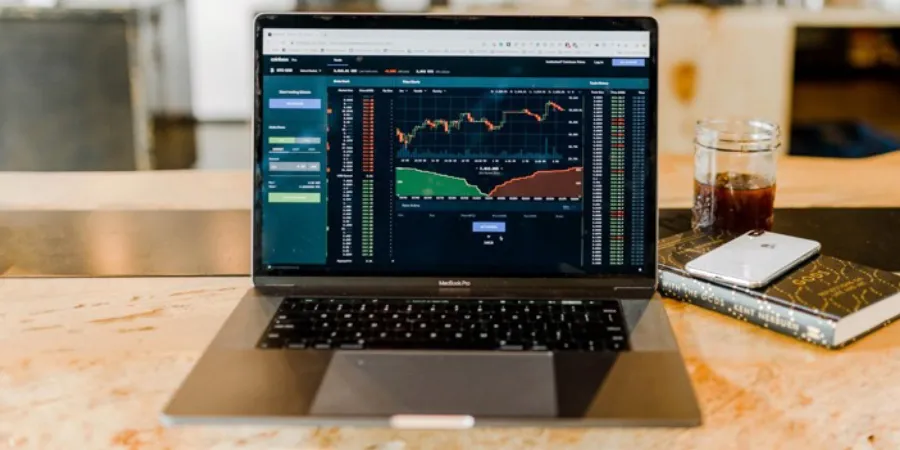In the dynamic world of financial markets, forex trading in South Africa has emerged as a beacon for investors looking to diversify their portfolios beyond traditional stock and bond investments.
With its unique position in the global market and a burgeoning forex trading community, South Africa offers a landscape filled with opportunities for those ready to navigate its complexities. This article is tailored for advanced level forex traders in South Africa, offering insights and strategies to refine your trading game in a market that is as promising as it is challenging.
Understanding the South African Forex Market
Regulatory Environment
Financial Sector Conduct Authority (FSCA): The regulatory body ensuring trader protection and market fairness.
Regulations and Compliance: Adhering to local regulations is crucial for trading legally and safely.
Market Characteristics
Currency Volatility: The South African Rand (ZAR) is known for its volatility, driven by both domestic and international factors.
Economic Indicators: Key indicators include GDP growth rates, inflation, and political stability, influencing ZAR’s strength.
Advanced Trading Strategies
Technical Analysis Mastery
Chart Patterns and Indicators: Utilize tools like Fibonacci retracements, Bollinger Bands, and MACD to predict market movements.
Volume Analysis: Understanding trading volume can provide insights into the strength of a market trend.
Fundamental Analysis for Forex
Economic Calendar: Stay ahead of market-moving events like monetary policy announcements and economic reports.
Global Impact: Consider the effects of international economic changes, particularly those influencing commodity prices, as South Africa is a major commodity exporter.
Leverage with Caution
While leverage can amplify gains, it also increases the risk. Employ it judiciously to manage potential losses.
Diversification
Spread your investments across different currency pairs to mitigate risk.
Stop Loss and Take Profit
Use these orders to automatically close positions at predetermined levels, protecting your portfolio from unexpected market swings.
Leveraging Technology
Trading Platforms and Tools
Choose platforms that offer advanced analytical tools, real-time data, and intuitive trading interfaces.
Algorithmic Trading
For those with a knack for programming, developing trading algorithms can automate strategies, making high-frequency trading more accessible.
The Importance of a Solid Trading Plan
A well-thought-out trading plan is your roadmap to success. It should include your trading goals, risk tolerance, strategies, and criteria for entering and exiting trades.
Continuous Learning and Adaptation
Staying Updated with Market Trends
Forex markets are incredibly dynamic. Regularly review financial news and analyses to stay informed about global economic trends affecting the forex market.
Advanced Educational Resources
Consider enrolling in advanced courses that cover complex trading strategies, market analysis techniques, and financial management. Online platforms offer a plethora of webinars, e-books, and interactive courses specifically designed for advanced traders.
Experiment with Demo Accounts
Before applying new strategies to live trading sessions, test them on demo accounts. This practice helps refine techniques without risking actual capital.
The Role of Community and Mentorship
Networking with Fellow Traders
Join forex trading forums, social media groups, and local clubs in South Africa. Sharing experiences and strategies with peers can provide valuable insights and alternative perspectives on the market.
Seeking Mentorship
Engage with seasoned traders who can offer guidance, advice, and feedback on your trading approach. A mentor’s experience can help you navigate complex market scenarios and avoid common pitfalls.
Utilizing Economic Indicators
Beyond the basic indicators, advanced traders should analyze employment rates, trade balances, and manufacturing indices for deeper insights into currency movements.
Incorporating AI and Machine Learning
Emerging technologies like AI and machine learning offer predictive analytics, trend analysis, and automated trading strategies, providing a competitive edge in the fast-paced forex market.
Ethics and Social Responsibility
Responsible Trading
Maintain ethical trading practices by adhering to regulations and being mindful of the impact of your trading activities on the economy and society at large.
Environmental, Social, and Governance (ESG) Investing
With growing awareness of sustainable investing, consider how your forex trading activities align with ESG principles. Supporting currencies of nations that prioritize sustainability can be part of a responsible trading strategy.
Final Thoughts
Forex trading in South Africa presents a unique set of opportunities and challenges. By mastering advanced trading strategies, leveraging technology, and engaging with the trading community, you can enhance your trading performance. However, success in the forex market is not solely measured by profitability but also by the ability to adapt to market changes, learn from experiences, and maintain ethical trading practices.
As the forex market continues to evolve, so should your strategies and knowledge. With dedication, continuous learning, and a proactive approach to risk management, you can achieve sustained success in the dynamic world of forex trading. Remember, in the fast-paced forex market, being
